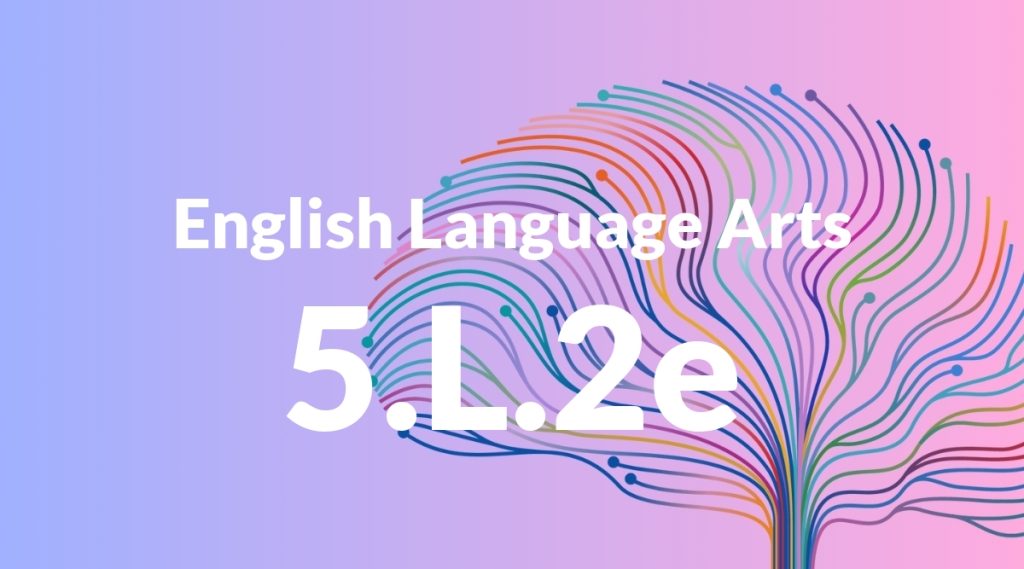Standard: 5.L.2e – Spell grade-appropriate words correctly, consulting references as needed.
Grade level: Grade 5
Subject: English Language Arts
Domain: Language
Teacher Overview
This standard emphasizes the importance of accurate spelling in written communication. It encourages students to use references like dictionaries and spell-check tools to ensure their writing is error-free, which is a critical skill for academic success and effective communication. Students should have foundational knowledge of basic spelling rules and familiarity with using dictionaries or digital spell-check tools.
Mastering this standard will prepare students to use more complex vocabulary accurately and develop stronger editing and proofreading skills, which are essential for advanced writing tasks.
Common Misconception 1
A common misconception is that spell-check tools are infallible. However, these tools can sometimes suggest incorrect words or fail to catch all errors, so it’s important for students to verify suggestions.
Intervention 1
To address this misconception, teach students to cross-reference spell-check suggestions with a reliable dictionary or another trusted reference to ensure accuracy.
Common Misconception 2
Another misconception is that once a word is learned, it doesn’t need to be checked again. Spelling can be tricky, and even familiar words can be misspelled.
Intervention 2
Encourage regular practice and review of spelling, and remind students to consult references when they are unsure about a word’s spelling.
Prerequisite Knowledge
Students should have a basic understanding of common spelling rules and patterns, as well as familiarity with using dictionaries or digital spell-check tools.
Subsequent Knowledge
After mastering this standard, students will be able to enhance their writing by using more complex vocabulary accurately and will develop stronger editing and proofreading skills.
Instructional Activities
- Spelling bees or spelling quizzes
- Dictionary scavenger hunts
- Peer review and editing sessions
- Writing exercises that focus on using new vocabulary
- Interactive spelling games and apps




